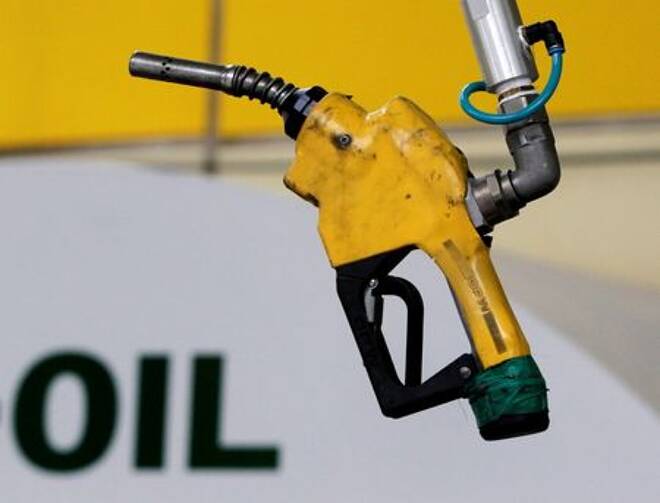Advertisement
Advertisement
Oil Up 3%; Forecast for Better U.S. Fuel Demand Feeds Rebound
By:
NEW YORK (Reuters) -Oil prices rose 3% on Tuesday, rebounding from recent losses on signs of rising fuel demand in the United States despite a surge in COVID-19 cases.
In this article:
Brent crude rose $1.59, or 2.3%, to settle at $70.63 a barrel and U.S. oil climbed $1.81, or 2.7%, to end the session at $68.29 a barrel.
Both contracts dropped around 2.5% on Monday, and last week notched their biggest losses in months as infections surged in major global oil consumers.
“Predicting short-term price swings has become extremely difficult given the arduous process of predicting the impact of the Delta variant on forward global oil demand, particularly in countries such as China where data is much less transparent than that of the U.S.,” said Jim Ritterbusch, president of Ritterbusch and Associates LLC in Galena, Illinois.
The rapid spread of the Delta variant of the coronavirus has pushed cases and hospitalizations in the United States to a six-month high.
Still, U.S. job growth and increasing mobility have boosted gasoline consumption so far in 2021, the U.S. Energy Information Administration said in a monthly forecast.
U.S. gasoline consumption is expected to average 8.8 million barrels per day (bpd) in 2021, up from 8 million bpd in 2020. Still, the EIA said U.S. gasoline consumption will remain below 2019 levels through 2022 due to the proliferation of people working from home.
U.S. crude, gasoline, and other product inventories are likely to have dropped last week, with gasoline stocks forecast to fall for a fourth consecutive week, a preliminary Reuters poll showed on Monday.
The U.S. Senate on Tuesday passed a $1 trillion infrastructure package that could serve as the nation’s biggest investment in decades in roads, bridges, airports and waterways. If enacted, the bill would boost the economy and demand for oil products, analysts said.
Successful vaccination programmes in the West and encouraging economic data come in sharp contrast to rising infections in the East.
In Australia, police are on the streets to enforce COVID-related restrictions. Some cities in China, the world’s top crude oil importer, have stepped up mass testing to fight a new surge of the virus.
For a look at all of today’s economic events, check out our economic calendar.
(Reporting by Devika Krishna Kumar in New York; Additional reporting by Bozorgmehr Sharafedin in London, Aaron Sheldrick in TokyoEditing by Marguerita Choy, David Holmes and David Gregorio)
About the Author
Reuterscontributor
Reuters, the news and media division of Thomson Reuters, is the world’s largest international multimedia news provider reaching more than one billion people every day. Reuters provides trusted business, financial, national, and international news to professionals via Thomson Reuters desktops, the world's media organizations, and directly to consumers at Reuters.com and via Reuters TV. Learn more about Thomson Reuters products:
Did you find this article useful?
Latest news and analysis
Advertisement
